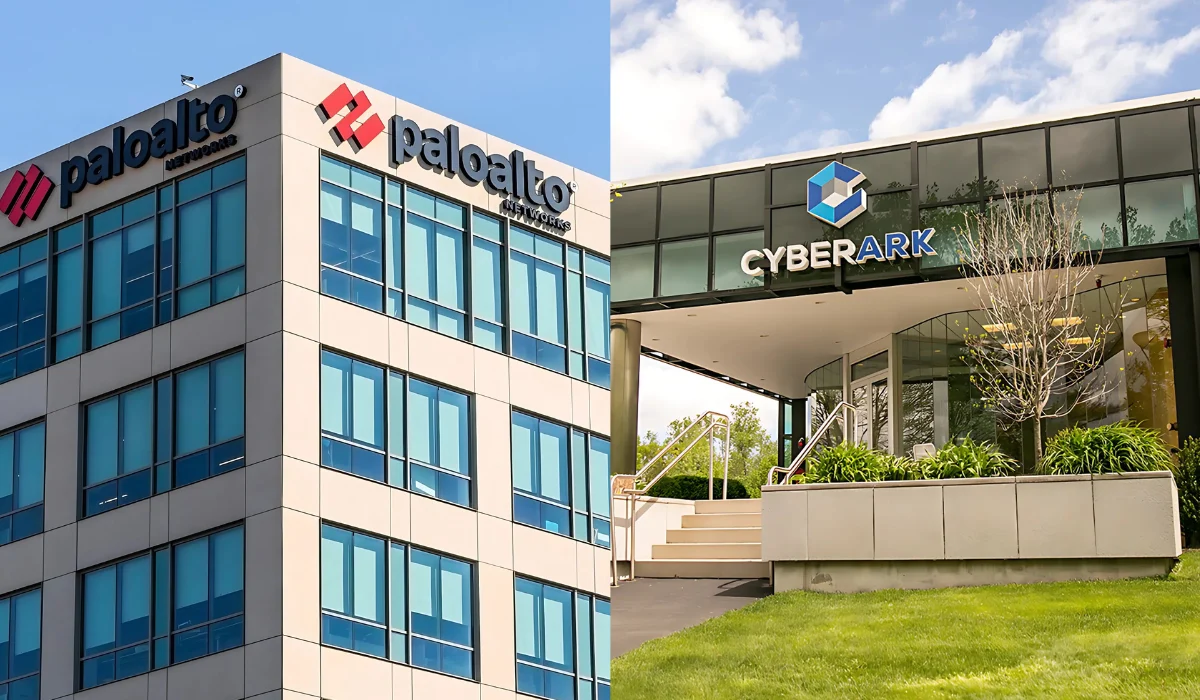Palo Alto Networks is buying CyberArk Software for approximately $25 billion, using a mix of cash and stock. CyberArk shareholders will receive $45 per share plus 2.2005 Palo Alto shares for each share they hold. This move marks Palo Alto’s largest ever purchase and signals its entry into identity security as a core platform.
Why Identity Security Is Now at the Center of Cyber Strategy
CyberArk specializes in privileged access management (PAM)—tools that guard the most sensitive accounts in enterprises. With the rise of AI and machine identities, securing these access points is becoming critical. Palo Alto CEO Nikesh Arora says every identity—human or machine—needs proper privilege control.
- Cyber threats increasingly target identity vulnerabilities.
- The combined platform aims for real‑time, AI-powered identity-aware security.
- Analysts see strong synergy, as Palo Alto expands beyond traditional firewall tools.
How the Stock Market Reacted to the News
CyberArk’s stock jumped around 13% after reports of the acquisition, hitting record levels. In contrast, Palo Alto’s shares dropped about 4–6%, as investors digested the costs and integration risks.
Power Shift: What This Means for Both Companies
- Palo Alto now adds CyberArk’s identity specialist offering to its broader security products.
- CyberArk gains access to Palo Alto’s larger customer base and strong distribution.
- Few overlaps exist between their products—this suggests smoother integration and cross‑selling opportunity. Analysts from Jefferies and Wedbush call it a “strategic home run.”
Future Outlook and Timeline
The deal is expected to close during Palo Alto’s fiscal 2026 (second half), once regulatory approvals and shareholder votes happen. The transaction has already been approved by both companies’ boards.
- Palo Alto projects the deal will boost revenue growth and profit margins immediately.
- Free cash flow per share is expected to rise by fiscal year 2028, after synergies take hold. Formal financial filings are coming soon.
What It Means for Businesses and AI‑Driven Security
Companies using AI or machine automation should expect new security tools focused on agentic intelligence—agents that act autonomously. CyberArk’s platform supports this exact need. Palo Alto says it will enforce just‑in‑time access and least privilege principles for those systems.
This move also reflects a broader shift: businesses now prefer fewer, integrated cybersecurity vendors rather than juggling multiple tools. As identity-based attacks rise, a unified platform helps reduce gaps and simplify operations.
Real Reactions and Social Buzz
LinkedIn posts by industry figures show excitement:
“CyberArk: The Smarter Buy for Palo Alto Networks?” — Lewis Bullock, Head of Cybersecurity, highlighting the minimal overlap and high strategic fit.
Key Takeaways
- At $25 billion, this is Palo Alto’s biggest acquisition ever.
- Identity security becomes a core platform area.
- Minimal product overlap supports smoother merger.
- Markets reacted enthusiastically for CyberArk, nervously for Palo Alto.
- Closing expected in fiscal 2026, with full benefits by 2028.
FAQs
What does CyberArk do?
CyberArk is an innovator in identity and privileged access security, helping secure the most important accounts for enterprises and organizations around the world.
How much is Palo Alto paying per share of CyberArk?
CyberArk shareholders receive $45 in cash and 2.2005 shares of Palo Alto stock for every share of CyberArk they own.
How did the market respond to the news?
CyberArk’s stock increased approximately 13% while Palo Alto’s shares fell around 4-6% due to investors pricing in the costs and the integration risk based on a deal of this size.
What will benefit customers as a result of this deal?
Organizations will eventually have access to a platform with a consolidated view of security that will cover network defense, and identity controls for people, machines, and AI agents.
Why does identity security matter now?
As organizations push to automate tasks with robots or AI agents, organizations need to manage, secure, and know the identity of each automated entity in order to secure against breaches and misuse.
What is next?
Final shareholder votes, regulatory approvals and integrating the two companies. Palo Alto expects to start generating benefits from the deal by

